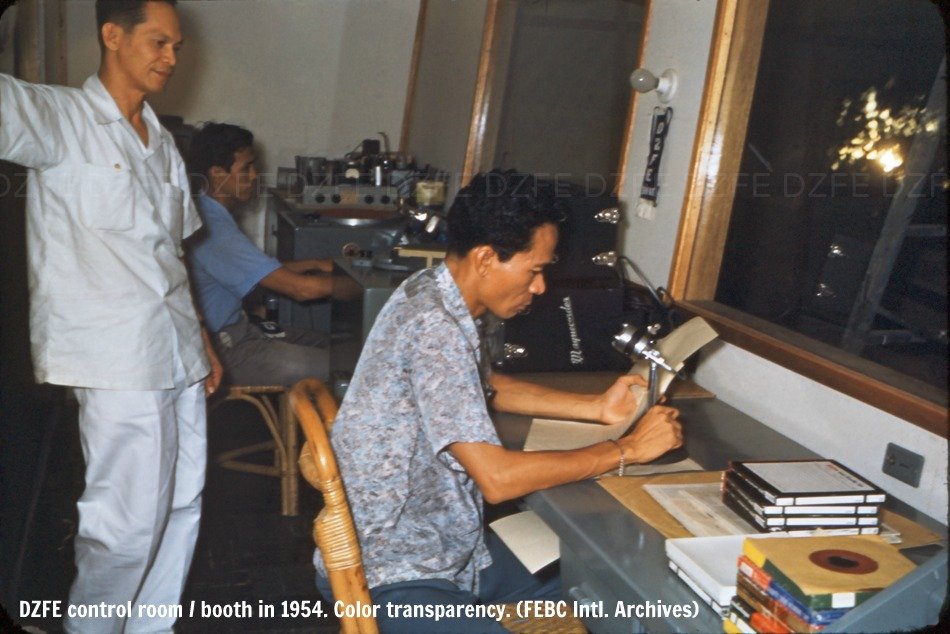98.7 DZFE-FM “The Master’s Touch” is the classical music service of Far East Broadcasting Company, Phils. It is a donor-supported, non-commercial station with a terrestrial broadcast coverage reaching listeners in the Greater Manila Area. DZFE’s programs can also be heard through internet simulcast.
What is DZFE’s format?
Classical music and compatible genres with biblical commentary programs. DZFE’s programs are put together to advance a joint appreciation of classical music and the Gospel of Jesus Christ. This is behind the phrases “the music of the masters and the Master’s Word”, or “the work of the masters and the Work of the Master” (referring to the finished work of Christ on the cross.)
How did it all begin?
DZFE is the Metro Manila FM station of Far East Broadcasting Company, an evangelical radio network established in the Philippines in 1948 to bring “Christ to the World by Radio”. When the government invited FEBC to accept a radio station license specifically for the running of a classical music station, FEBC accepted the offer. DZFE’s inaugural broadcast went to air in June of 1954.

A providential invitation
Like all FEBC stations, DZFE seeks to bring Christ by radio to an aspect of our world. With the embrace of the classical music format, DZFE made its home in the sphere of the humanities, the field of discipline which nurtures the mind in exploring fundamental questions of human existence, and of which the performing arts traditionally forms a part.
The 1980 United States Rockefeller Commission on the Humanities said of it: “The humanities offer clues but never a complete answer. They reveal how people have tried to make moral, spiritual, and intellectual sense of a world in which irrationality, despair, loneliness, and death are as conspicuous as birth, friendship, hope, and reason.”
As followers of a Redeemer who gave his life out of love and compassion for the lost, we feel that the presence and perspectives of God’s Word and Gospel are much needed in this sphere.
At the same time, we want to affirm art in all its God-purposed fullness. As twentieth century art critic Hans Rookmaaker wrote in his Modern Art and the Death of a Culture: “Art needs no justification… Art has a meaning as art because God thought it good to give art and beauty to humanity…”; and also, “The validity of art should be shown through Christianity”.
This involves affirming—to quote Johan Tangelder—that “even those who don’t know God as the source of beauty still can produce works of art.” He went on to ask, “What should our reaction be if God gives us an aesthetic experience—a glimpse of a sublime landscape, the satisfaction of a good novel, the pleasing forms of a painting or sculpture? We may not cover our eyes, spurning God’s gift of beauty. Gene Edward Veith, Jr. notes, ‘We are obligated to linger over it, to enjoy it fully, and to glorify God.'”
In the tradition of classical music, we see the fruit of an exceptionally gracious visitation of God’s common grace and creative spirit upon humanity. Our dedication to it is an expression of our hope that the tradition, and those who engage in it and love it, will find fullness in the riches of Christ and his redemptive purposes.
Why a non-commercial platform?
Since its inception, DZFE has been sustained on donations from supporters of both FEBC and DZFE. Despite the challenges of this mode of operation, we believe that it best allows us to preserve the integrity of our message and format.




